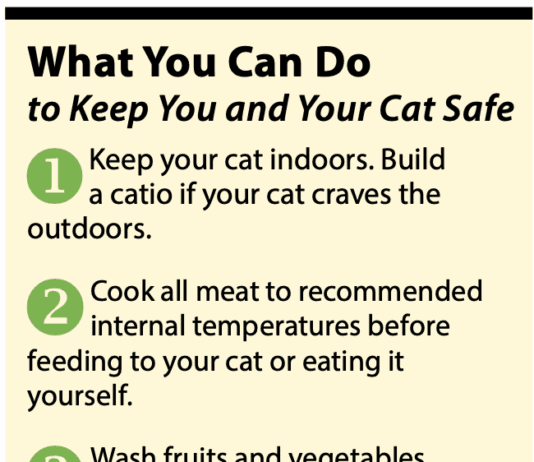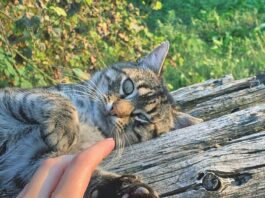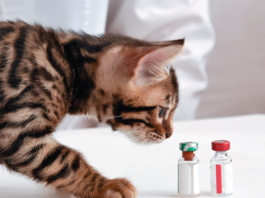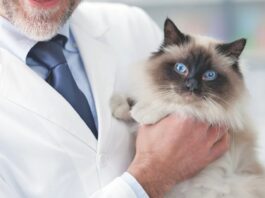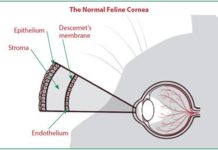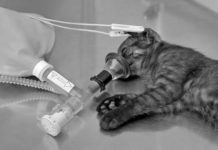FDA Warns Topical Drug Poses Toxic Risk to Cats
The Food and Drug Administration has issued a warning about pets exposure to a topical non-steroidal anti-inflammatory (NSAID) drug after reports of deaths and illness in cats. Their owners had applied flurbiprofen cream or lotion to their own neck or feet to treat pain.
Is a Clinical Trial Right for Your Cat?
If your cat had a life-threatening disease with no effective treatment, would you enter him in a clinical trial that might result in a helpful drug or other therapy - perhaps even a cure? Clinical studies are essential in moving medicine forward and often rely on the participation of animals with naturally occurring diseases to find answers.
Researchers Pursue a Gene Therapy Cure
Some veterinarians use a newer form of the human hormone erythropoeitin (EPO) called darbepoeitin to treat anemia associated with rental failure. EPO, produced in...
Short Takes: June 2015
Updated guidelines on pain management from the American Animal Hospital Association and the American Association of Feline Practitioners are primarily intended for private practice veterinarians. The guidelines information-packed 18 pages cover the latest research and experts consensus on medications, but cat owners can find practical help, too. Examples: advice for the home environment and a new emphasis on complementary therapy.
Ask Elizabeth: June 2015
I recently adopted a beautiful kitty named Annie, and she has won my heart. Unfortunately after bringing Annie home, I discovered that she had some real neurological issues. She rocks back and forth and falls constantly when moving from room to room. Her veterinarian says that she has idiopathic [undetermined origin] vestibular syndrome. I do not think that she is going to get any better. Can you shed some light on this condition?
How to Handle a Fainting Episode
One minute your cat seems fine. The next hes passed out on the floor. What should you do? Fainting, or clinically speaking, syncope, is the temporary loss of consciousness followed by a spontaneous rapid recovery.Rather than an illness in itself, fainting is a symptom of illness caused by a lack of sufficient flow of oxygenated blood to the brain, says cardiologist Bruce Kornreich, DVM, Ph.D., ACVIM, Associate Director of the Feline Health Center at Cornell. His advice during an episode: Carefully monitor your cat, never put your hand in his mouth, and contact a veterinarian immediately.
The Common Cause of Ear Infections
One common reason for veterinary visits among cats is otitis externa, or inflammation of the external ear canal. Most people believe that that the term otitis externa means an ear infection, but that isnt true. Something has to breech the normal defense mechanism of the ear to trigger the infection, says veterinary dermatologist William H. Miller, Jr., VMD, Medical Director of the Cornell University Hospital for Animals. Once the surface of the ear canal is damaged, bacteria or yeast inside and around the canal can cause an infection. The underlying causes can include tumors, allergies, ticks or fleas, and excessive grooming and ear wax. But by far the most frequent cause in cats, especially kittens, is ear mites.
The Anatomy of the Cornea
The cornea, the clear coating of the eye that admits light, has layers of specialized skin cells, including:
Techniques and Treatments From Stem Cell Therapy to Massage
These are among the treatments that veterinarians increasingly use to improve cats well-being:
Anesthesia Presents Fewer Risks Today
If your cat needs to have anesthesia, you can rest easier about the procedure because it poses fewer risks today, thanks to newer drugs, precise monitoring and an increased number of board-specialized veterinarians.Our discipline has evolved, says Luis Campoy, LV CertVA, MRCVS, Section Chief of Anesthesiology at Cornell University College of Veterinary Medicine.
Life-Saving Screening for Hemophilia
Advances in veterinary medicine and an increase in animal blood banks have improved the diagnosis and treatment of hemophilia to the extent that some cats who once would have died from the life-threatening disorder can now live full lives.
How Mutated Genes Pass To The Next Generation
Hemophilia occurs as a result of genetic mutation, and once it develops, it can be transmitted to a cats offspring. Because female carriers are asymptomatic (meaning they dont show any symptoms), it can be challenging to identify them to avoid passing the hemophilia mutation onto the next generation.

